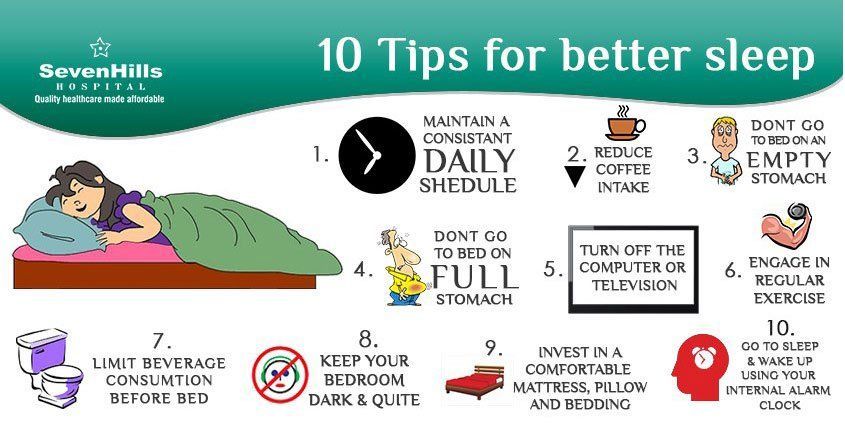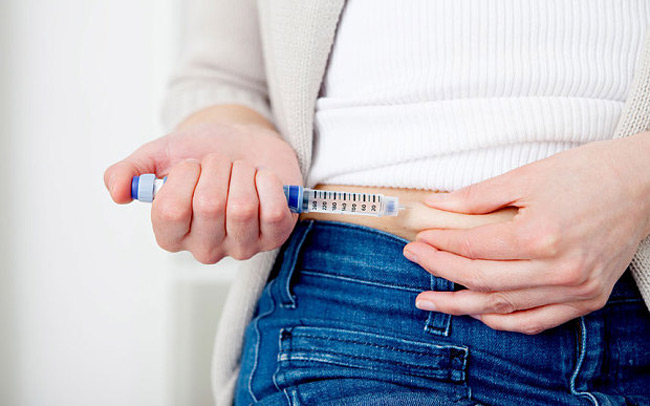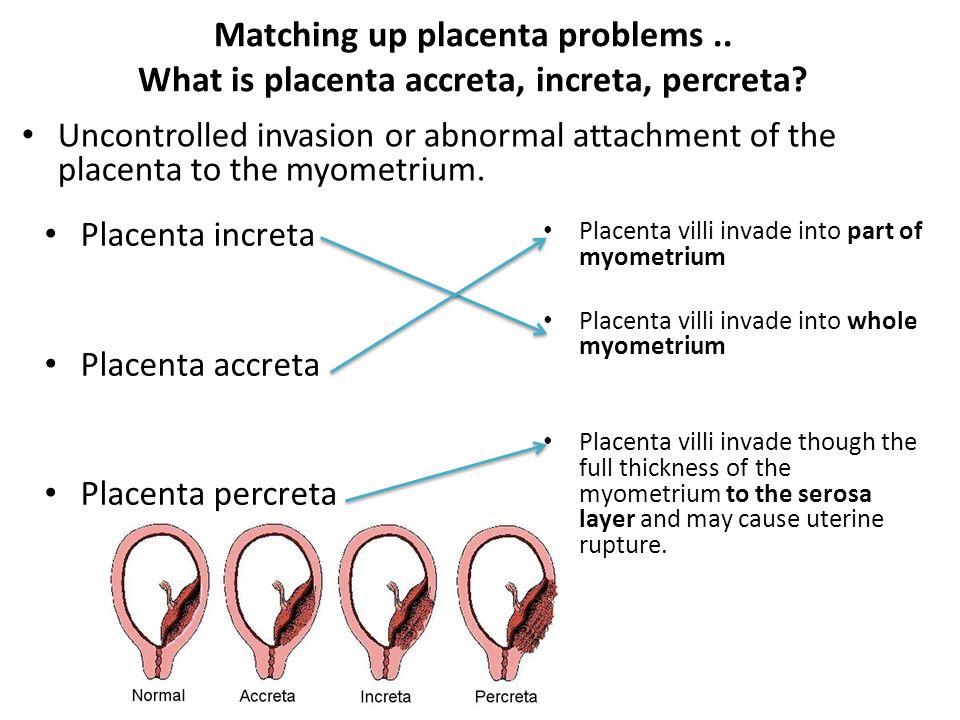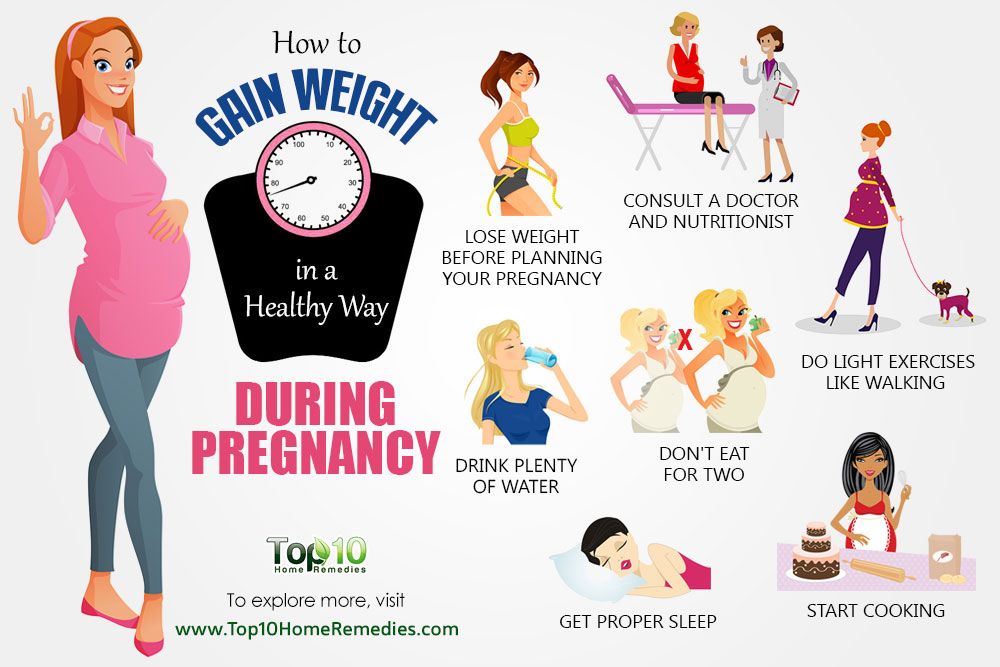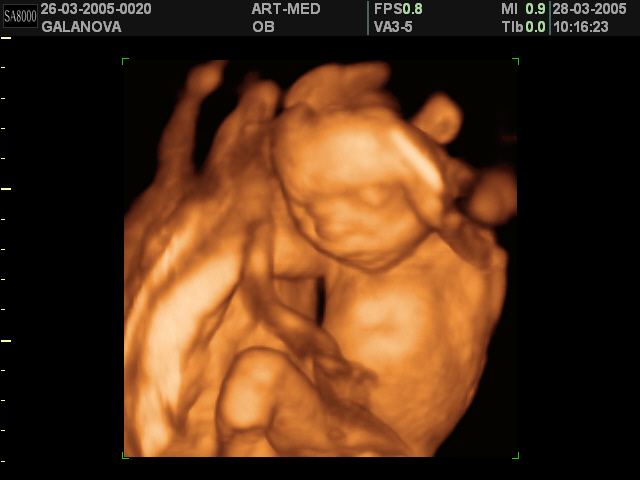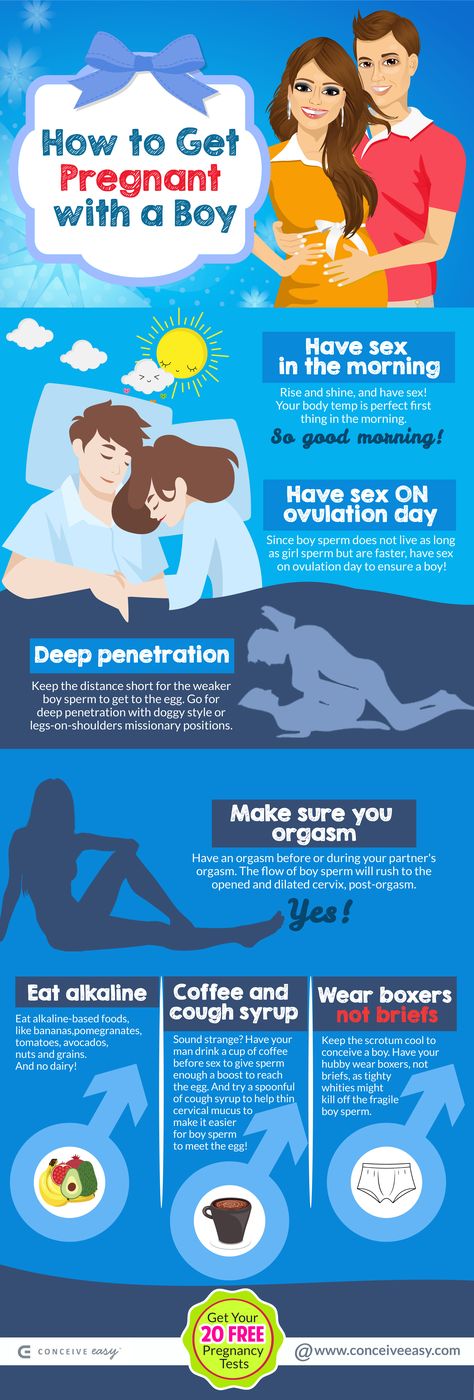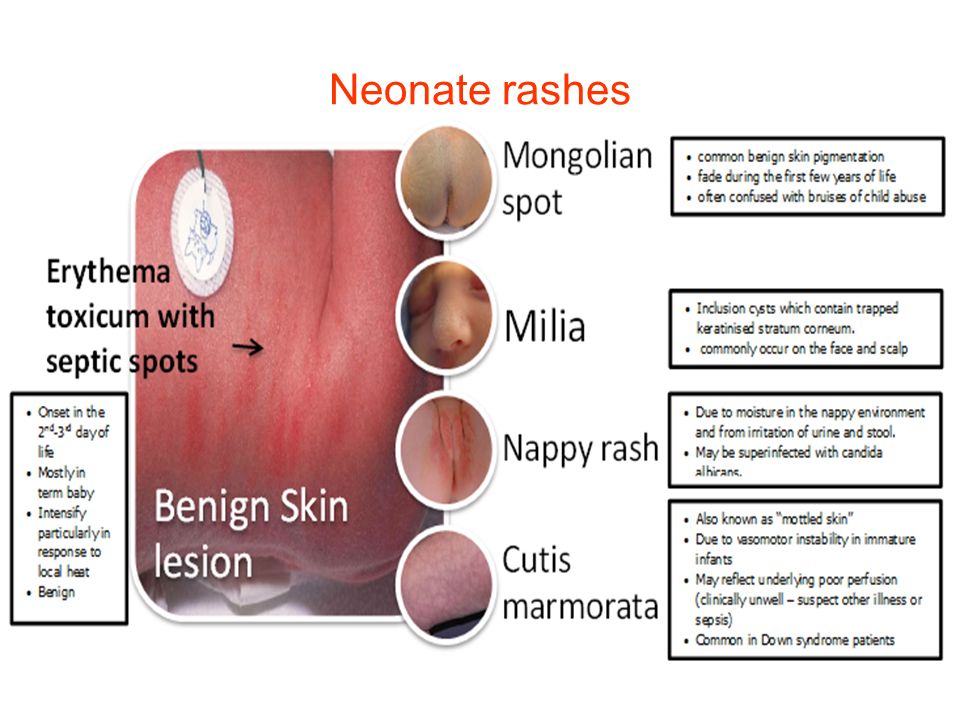Chest pain pregnancy early sign
Causes and when to seek help
Pregnancy can cause discomfort and pain in many parts of the body. When these sensations occur in the chest, the cause is often pressure from the growing fetus, acid reflux, or other relatively harmless issues.
In rare cases, this chest pain can result from cardiovascular issues or complications of pregnancy.
Keep reading for more information about the causes of chest pain during pregnancy and when to see a doctor.
Many people experience pain or discomfort during pregnancy, and some of these sensations can mirror symptoms of cardiac conditions. These issues include:
- chest pain
- heart palpitations
- shortness of breath
- fainting
- fatigue
- difficulty breathing while sleeping
These can be worrying, but often, they do not result from a serious health problem.
Some relatively harmless issues that can cause chest pain during pregnancy are outlined below.
Heartburn
When a person eats, a valve between the esophagus and stomach opens to let food into the stomach. This valve is called the esophageal sphincter.
When a person is not eating, the esophageal sphincter ordinarily closes to stop partially digested food and stomach acid from rising back up into the esophagus. If this does occur, the issue is called acid reflux.
During pregnancy, rising levels of the hormone progesterone cause the esophageal sphincter to relax, increasing the risk of acid reflux.
Acid reflux can cause heartburn, a burning sensation in the throat or mouth that is common after eating, particularly when the person is lying down after a meal.
The following strategies can help prevent heartburn:
- avoiding spicy or greasy foods
- eating smaller meals
- remaining upright for longer after eating
A doctor or pharmacist may recommend taking an antacid for persistent heartburn during pregnancy. This type of medication neutralizes stomach acid, relieving the pain.
Growing uterus and fetus
As the fetus and uterus grow, this increases pressure on surrounding organs, including the lungs and stomach.
This pressure can cause discomfort and pain in the chest, typically during the second and third trimesters. Increasing pressure in the chest cavity can also cause:
- a person to feel full more quickly while eating
- a faster heartbeat
- acid reflux
- shortness of breath
A pregnant person who experiences the symptoms above should see a doctor to make sure of the cause.
The cause of chest pain during pregnancy may be a severe health issue, such as preeclampsia, a heart attack, or another heart condition.
Preeclampsia
Chest and shoulder pain during pregnancy can indicate a serious complication called preeclampsia. This can sometimes be fatal for the mother and fetus.
Common signs and symptoms of preeclampsia include:
- high blood pressure
- a persistent headache
- heartburn that does not resolve with lifestyle changes or antacid medication
- pain in the upper abdomen, on the right side, or under the ribs
- swelling in the hands and face
- sudden weight gain
- visual disturbances
- protein in the urine
Preeclampsia typically goes away once the baby is born.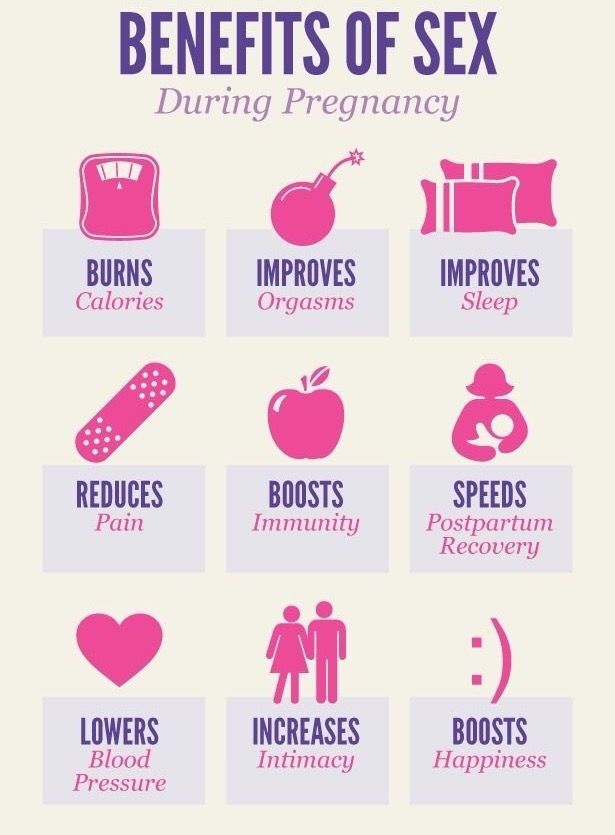 However, in some people, preeclampsia continues after pregnancy or begins after they have given birth.
However, in some people, preeclampsia continues after pregnancy or begins after they have given birth.
People with preeclampsia may also experience related complications, such as eclampsia or a syndrome that involves rupturing of red blood cells, a low platelet count, and elevated liver enzymes — commonly called HELLP syndrome.
A pregnant person may not know that they have preeclampsia or related complications. Regular health checks and tests help doctors identify these issues.
Heart disease or heart attack
A relatively uncommon cause of chest pain during pregnancy is a heart attack.
During pregnancy the volume of blood in the body increases to accommodate the growing fetus. In order to pump the extra blood efficiently, the heart rate increases, and this added strain leads to a higher risk of a heart attack.
A 2018 study investigated the incidence of heart attacks among pregnant people in the United States who stayed in the hospital for complications of pregnancy or the adjustment period afterward.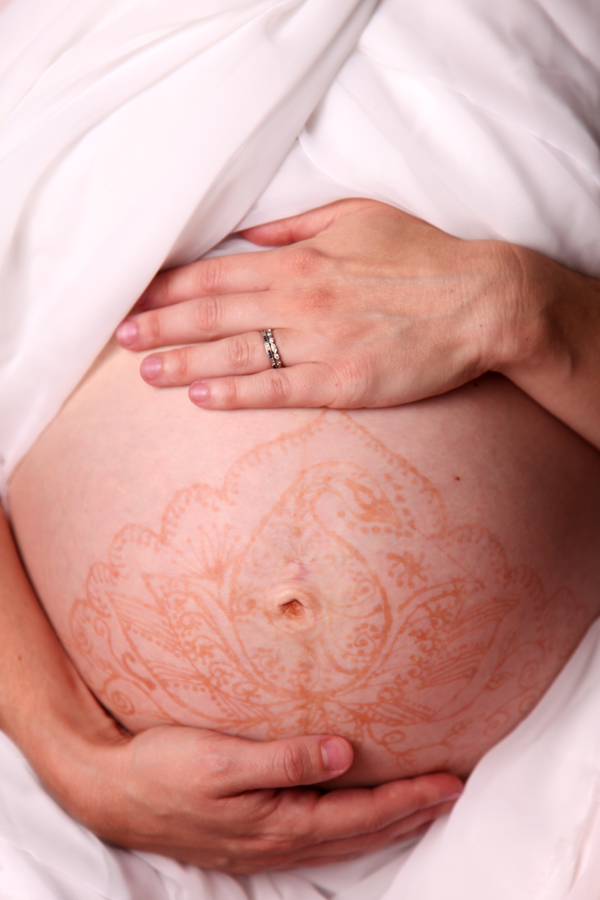 Heart attacks had occurred in 8.1 out of every 100,000 of these people.
Heart attacks had occurred in 8.1 out of every 100,000 of these people.
People who have heart disease or other preexisting cardiac conditions have an increased risk of a heart attack during pregnancy.
The following symptoms can indicate heart disease:
- chest pain
- a fast heartbeat
- a chronic cough
- extreme breathing difficulties
- extreme fatigue
- extreme swelling or weight gain
- fainting
A pregnant person who experiences any of the above symptoms should see a doctor immediately.
Pulmonary embolism
Another rare cause of chest pain during pregnancy is pulmonary embolism (PE).
During pregnancy, natural changes to the body make blood clots more common. In fact, pregnant people are 5 times more likely to develop blood clots than non-pregnant people.
A PE is a blood clot that blocks an artery in the lung. This condition can be fatal if not treated immediately.
PEs are rare, but they are still a leading cause of maternal deaths in the United States.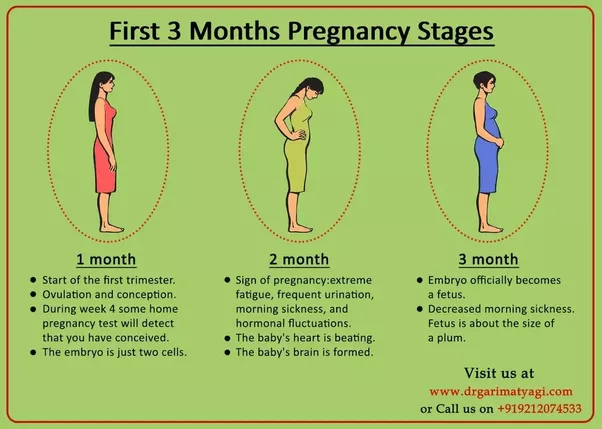 In fact, about 10 percent of maternal deaths in the U.S. are from a PE. One-quarter of the PE-related deaths occur during pregnancy; two-thirds happen after delivery.
In fact, about 10 percent of maternal deaths in the U.S. are from a PE. One-quarter of the PE-related deaths occur during pregnancy; two-thirds happen after delivery.
People who have a history of blood clots, varicose veins, or deep vein thrombosis are more likely to develop PE during or after pregnancy. People with excess weight or obesity are, too. A BMI over 30 puts a person at a higher risk, and the higher the BMI, the greater the risk.
Pregnant people who have a Caesarean-section delivery have a higher risk of developing blood clots. Immobility after delivery can increase chances, too.
The following symptoms can indicate PE:
- dizziness or lightheadedness
- swelling in one leg
- shortness of breath
- chest pain
- increased heart rate
A pregnant person experiencing these symptoms should see their doctor immediately.
Additionally, pregnant people should discuss preventative measures, especially if they have one or more risk factors for PE.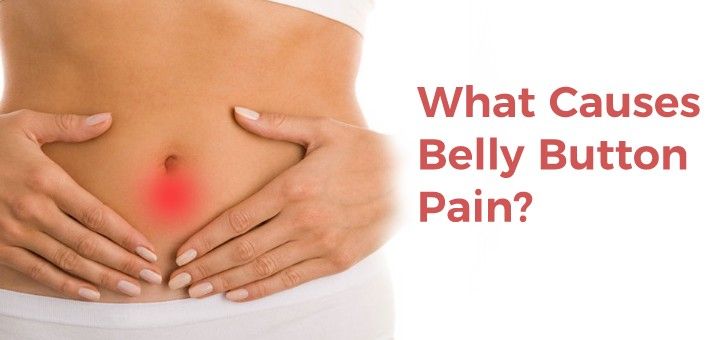 Routine check-ups can also help detect possible blood clots.
Routine check-ups can also help detect possible blood clots.
In many cases, chest pain and discomfort result from relatively harmless issues. However, a pregnant person should see a doctor if they have any concerns about their health or that of the fetus.
It is important to attend every appointment with a doctor or midwife and to undergo every recommended test. These can indicate whether any complications have developed and ensure that the mother and baby are healthy.
Pregnant people who experience any symptoms of heart disease or preeclampsia during or after pregnancy should receive immediate medical care.
It is also crucial that pregnant people are aware of the symptoms of a heart attack. These include:
- chest pain or discomfort
- pain, pressure, or a squeezing sensation in the center of the chest that lasts for more than a few minutes or goes away and comes back
- shortness of breath, which may be accompanied by chest discomfort
- cold sweats
- lightheadedness
- nausea
- discomfort or pain in the jaw, neck, stomach, back, or in one or both arms
A pregnant person who experiences any of these symptoms and believes that the cause may be a heart attack should call 911 immediately or otherwise seek urgent medical assistance.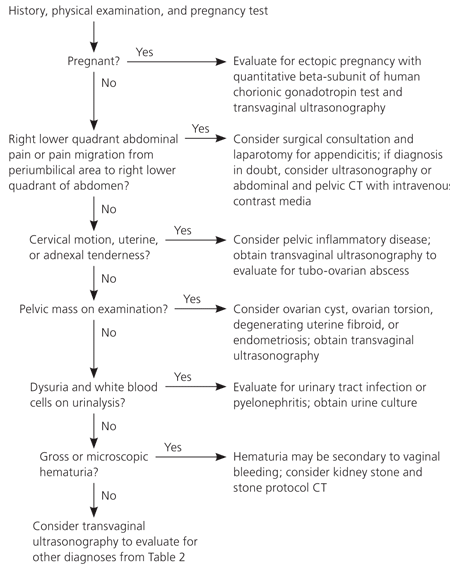
Chest pain can be a harmless symptom of pregnancy. The cause is often heartburn or pressure as the growing uterus pushes against the organs in the chest cavity.
However, chest pain during pregnancy can indicate a more serious condition, such as a heart attack or preeclampsia. These require immediate medical attention.
Pregnancy can be a physically challenging time. Anyone with any concerns about their health or that of the baby should consult a doctor.
5 Reasons of Chest Pain During Pregnancy That You Didn’t Know
Any kind of chest pain is frightening, especially when it occurs during pregnancy.
“Not every pregnant woman will experience chest pain. But if you do, it may happen during the early months of pregnancy or later,” says Dr. Anita Sabherwal Anand, Consultant Obstetrician-Gynecologist at Sitaram Bhartia Hospital in South Delhi.
Could tightness in the chest be a symptom of pregnancy?
Some women experience soreness around the breasts, tightness and chest pain, which may be early signs of pregnancy.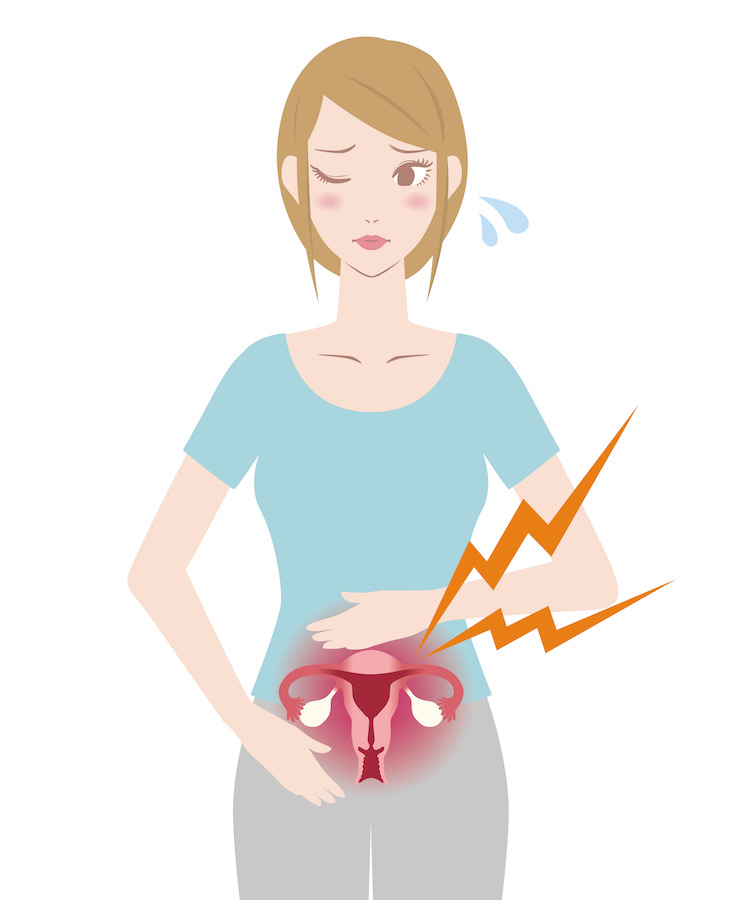
Yes. Your body is undergoing many changes simultaneously, some of which may cause chest pain. In most situations, pain in the chest region may not be serious.
Here are five main reasons you may be experiencing chest pain during pregnancy.
- Heartburn and indigestion
Heartburn occurs when a valve that connects the esophagus to the stomach loosens, allowing the acid from the stomach to escape into the throat. This is why you feel a burning sensation in your throat. The valve usually remains closed except to allow food to pass into the stomach. Certain citrusy foods and chocolate may relax the valve, resulting in heart burn.
“You may experience heartburn along with indigestion (in the form of bloating or abdominal discomfort), that are caused by spicy and fried foods.”
-
Growing breast size
As your breasts grow bigger in preparation to nourish your little one, either only your breasts will hurt or your chest in general may hurt for a while.
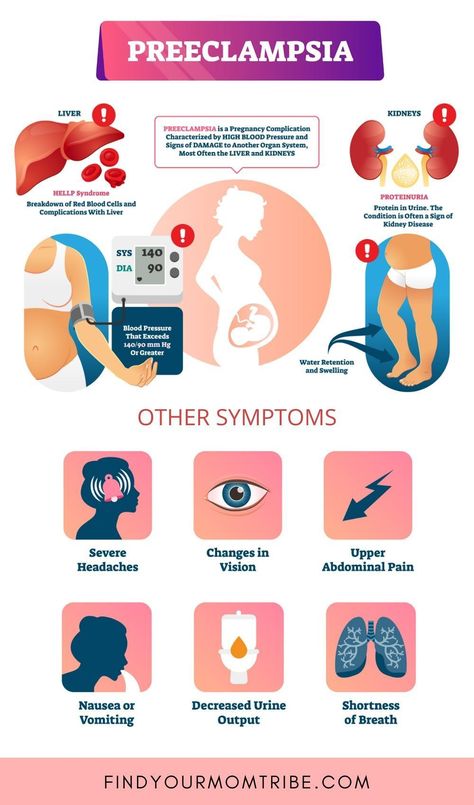 It is common for breasts to hurt in the first and third trimesters.
It is common for breasts to hurt in the first and third trimesters.
Pregnant women may feel this as pain under the bra line during pregnancy or as chest pain around 38 weeks. - Expanding rib cage
Your rib cage expands during the last three months of pregnancy. When this happens the cartilage that joins the rib to the sternum (breastbone) also enlarges. This may put pressure on the chest, resulting in pain.
-
Developing infections
Pre-existing conditions such as Asthma or conditions that you develop during pregnancy such as a cold, cough or pneumonia may also cause chest pain.
“You should contact a doctor if you have pneumonia and your chest hurts.”
-
Existing risk factors
Women who have a prior history of heart disease or are overweight or have an immediate family member suffering from varicose veins, blood clot or a stroke shouldn’t dismiss any instance of chest pain.
“You may be at a higher risk of developing heart problems, and so you should contact your doctor immediately.
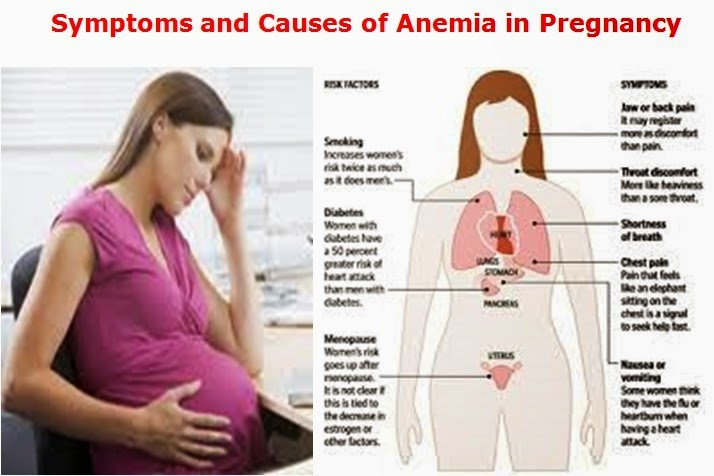 ”
”
Data suggests that it is possible to have a myocardial infarction or heart attack while pregnant although it is rare. According to the American College of Obstetricians & Gynecologists, cardiovascular disease is now the leading cause (26.5%) of death in pregnancy and the postpartum period.
The risk of myocardial infarction increases in pregnancy, more so in women older than 40 years as compared to women younger than 20 years.
How do I know if my chest pain during pregnancy is serious?Keep an eye out for these signals that may indicate an urgent need of medical help.
Chest pain accompanied by any of these symptoms:
- breathlessness
- intense pain upon coughing
- palpitations
- blurred vision
- headache
If you think you or a loved one is experiencing these symptoms, contact your doctor and seek emergency care.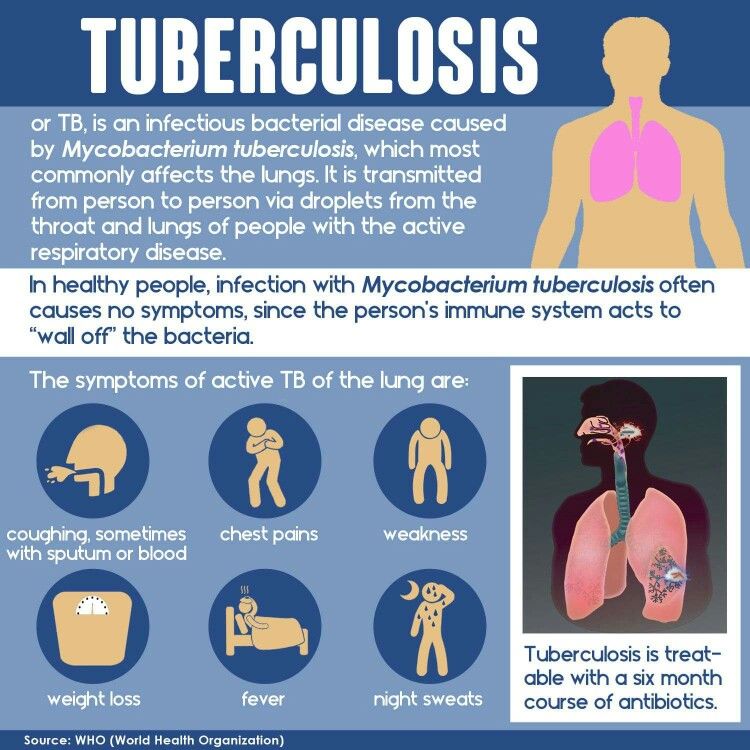
“The course of treatment depends entirely on the cause behind your symptoms,” explains Dr. Anita.
For example, chest pain along with swelling in the legs or feet may indicate preeclampsia. Excessive vomiting may represent severe morning sickness.
“Your doctor will ask about symptoms and may advise some tests. You will be treated depending on the diagnosis made.”
When Can Chest Pain during Pregnancy Be Treated at HomeMild episodes of chest pain resulting from heartburn, indigestion or physical changes can be brought under control by
- Spacing out your meals and eating smaller quantities
- Avoiding spicy foods that may irritate your stomach and throat
- Eating 2-3 hours before you go to sleep and
- Engaging in physical activity and meditation to de-stress
“If symptoms of chest pain during pregnancy, breathlessness and uneasiness remain even when you are lying down, it would be wiser to consult a doctor than to delay getting help,” concludes Dr.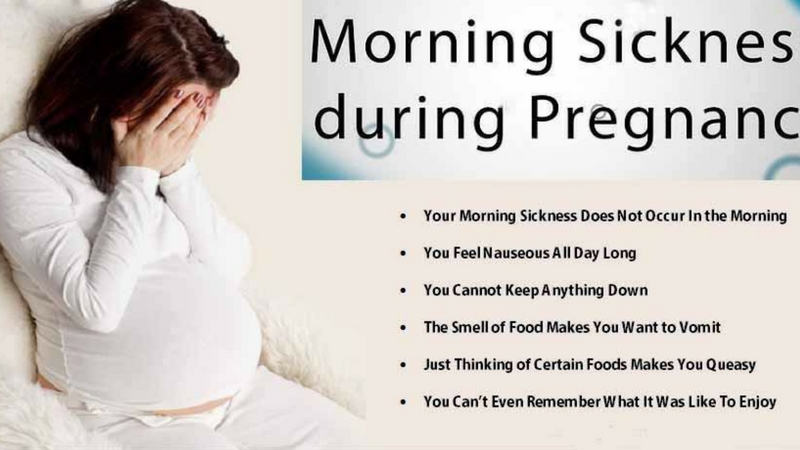 Anita.
Anita.
You may like to read:
- Go Nuts for a Healthy Heart!
- Anaemia in Pregnancy: What You Must Know To Treat It Soon
- What You Need to Know about Your Pregnancy Diet Chart (Second & Third Trimester)
This article has been written with inputs from Dr. Anita Sabherwal Anand in 2020. Dr. Anita is an experienced obstetrician-gynecologist with 20+ years of experience. She is skilled at helping both high-risk and low-risk pregnant women through the antenatal and postnatal period.
Dr. Anita Sabherwal Anand
DNB Secondary (Obstetrics & Gynaecology), National Board of Medical Education, New Delhi (1999), MD (Obstetrics & Gynaecology), Lady Hardinge Medical College, University of Delhi (1997), MBBS, Lady Hardinge Medical College, University of Delhi (1992)
media about INVITRO.
Pregnancy is a special period in a woman's life, full of worries, anxieties and impatient expectation.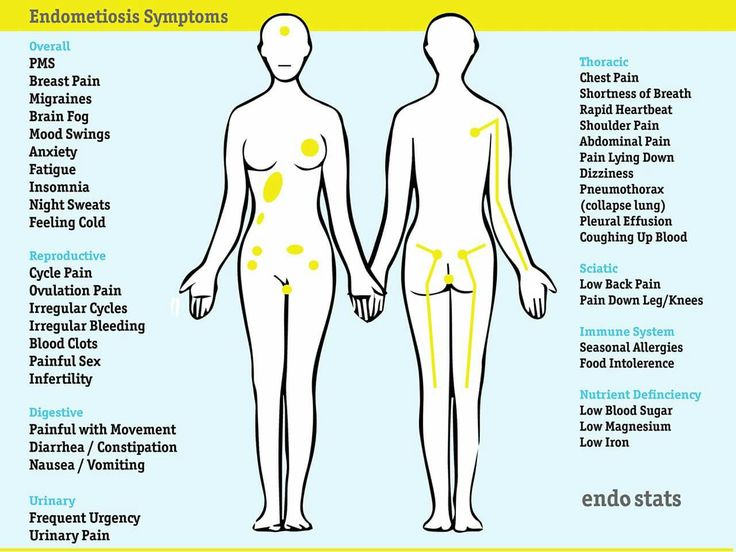 It is necessary to live these nine months with the maximum benefit both for the baby and for the mother, who wants to stay in shape and not feel deeply sick.
It is necessary to live these nine months with the maximum benefit both for the baby and for the mother, who wants to stay in shape and not feel deeply sick.
Be patient, it will soon pass
How to determine in the early stages that pregnancy has come, if most are able to notice only a textbook sign - a delay in menstruation, and some do not even suspect about pregnancy until the strong changes in the figure and the first movements of the child? But in fact, even before you are delighted with two strips on the test, the body gives signals about the emergence of a new life. If the period is still far away, nine simple, but very “bright” signs will tell you about the onset of pregnancy. nine0005
EXPERT COMMENT
Marina Ukolova, doctor-consultant of the Independent laboratory INVITRO.
Have you noticed that the lace on the bra is suspiciously folded over? Breast filled and added in size? This is one of the main signs of pregnancy.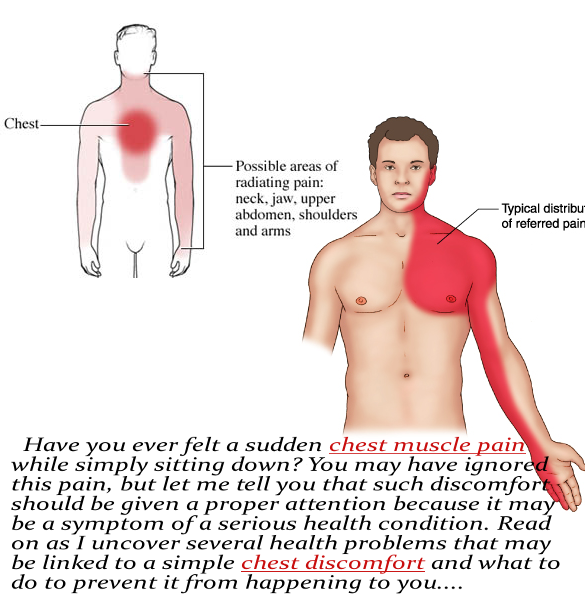 Breasts can begin to increase 1-2 weeks after conception, which is associated with increased secretion of hormones: estrogen and progesterone. Sometimes there is a feeling of tension in the chest or even slight pain. The nipples become very sensitive. nine0005
Breasts can begin to increase 1-2 weeks after conception, which is associated with increased secretion of hormones: estrogen and progesterone. Sometimes there is a feeling of tension in the chest or even slight pain. The nipples become very sensitive. nine0005
This means that you need to buy a supportive bra, give up tight underwear and synthetics that do not allow the skin to “breathe”.
Do you feel sleepy after dinner, yawn all day and can't concentrate? In the first weeks of pregnancy, the body works 24 hours a day - preparing for gestation, so fatigue and drowsiness are normal. Body temperature may rise to 37–37.2 degrees. In combination with nasal congestion (also one of the possible signs of pregnancy), this condition can easily be mistaken for a cold. nine0005
Try to get more rest, sleep at least 8 hours a day, and completely eliminate harmful foods from your diet. If you smoke, it's time to give up cigarettes.
Suddenly, in a stuffy room, you feel very dizzy? If you didn’t notice such symptoms before, then your body is signaling you about pregnancy.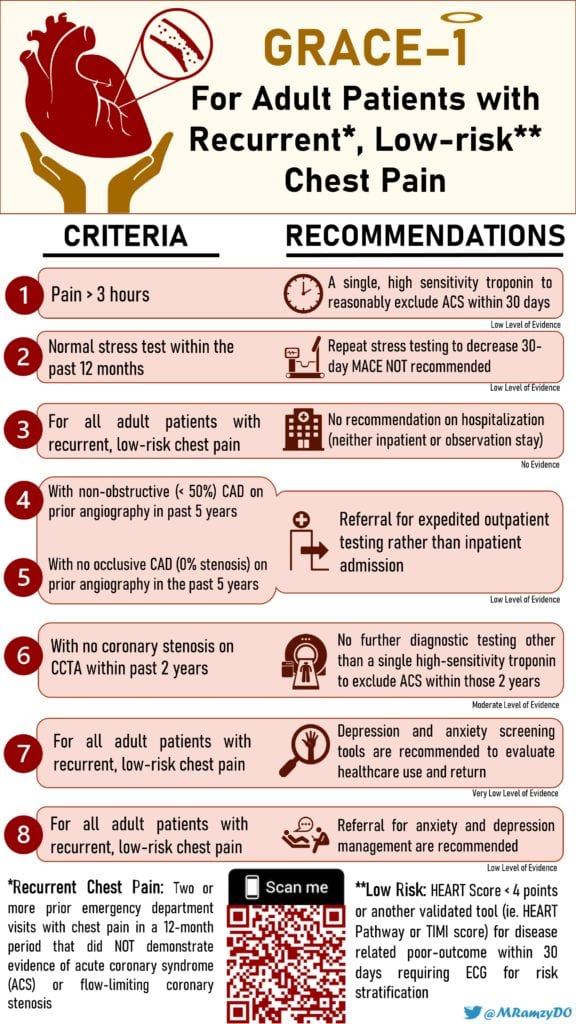 High or low blood pressure, its sudden changes leading to fainting and dizziness are also not uncommon for the first trimester of pregnancy.
High or low blood pressure, its sudden changes leading to fainting and dizziness are also not uncommon for the first trimester of pregnancy.
Buy a blood pressure monitor and check your blood pressure regularly. In the morning, do not abruptly get out of bed, try to do without sudden movements. Monitor your blood sugar by drinking plenty of fluids and eating every 3-4 hours. If the head begins to spin, you can drink some tea or coffee, with severe weakness - take 10-15 drops of cordiamine.
Do you have a headache in the morning, regardless of the weather and mood? This is also associated with an increase in progesterone levels. Fortunately, migraines recede with an increase in duration - in the second trimester you will forget about them. nine0005
Drink plenty of fluids and be sure to donate blood to rule out anemia. If the headaches do not stop, ask your doctor to prescribe medication.
The wine seems fermented, but does the smell of cooking make you feel sick? In most women, toxicosis begins at about 7 weeks and continues until the 12th week of pregnancy. But sometimes nausea makes itself felt already two weeks after conception. The culprit is the same hormone progesterone. There is another version: nausea and a change in eating habits are a defense reaction: this is how the body protects the child. The proof is the fact that it is usually “dangerous” foods that cause rejection: alcohol, spicy, fatty, fried foods. nine0005
But sometimes nausea makes itself felt already two weeks after conception. The culprit is the same hormone progesterone. There is another version: nausea and a change in eating habits are a defense reaction: this is how the body protects the child. The proof is the fact that it is usually “dangerous” foods that cause rejection: alcohol, spicy, fatty, fried foods. nine0005
Nutritionists recommend eating something else in bed in the morning, eating little but often all day, taking vitamin B6, it will help to cope with toxicosis. Not bad relieves nausea acupuncture massage of the wrist.
You suddenly burst into tears while watching Sex and the City, and then flew into a rage when you learned that your husband would be late at work. Hormones are to blame for everything - they are raging in your blood, and your mood changes from tearfulness to aggressiveness.
Be patient, this state will pass quickly. Tell your family and friends about your pregnancy so they don't worry or resent you.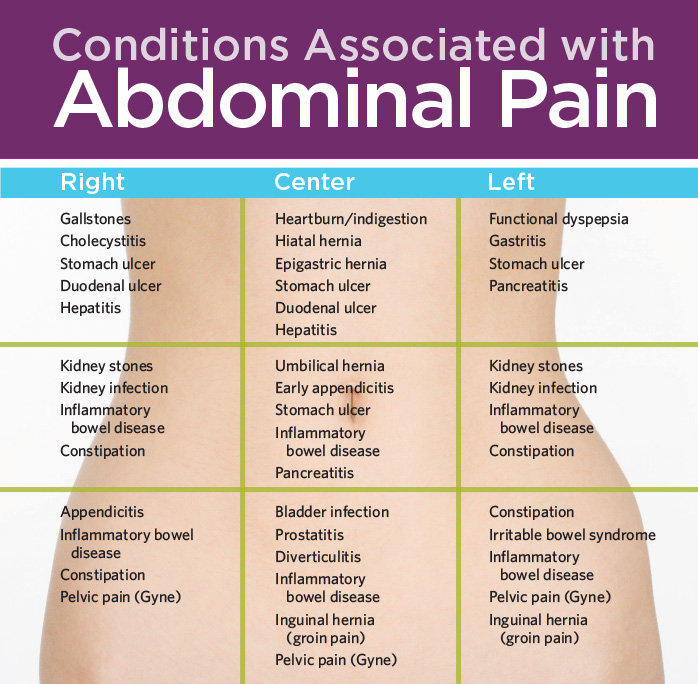 nine0005
nine0005
Do you think that your husband overuses cologne, the neighbors obviously overcooked the fish, and cigarette smoke causes nausea? Your new olfactory abilities indicate pregnancy.
Avoid smoking areas, ask your husband and friends not to wear perfume, avoid using public transport during rush hours.
You may know that frequent urination is inevitable in the third trimester of pregnancy, but the same symptom is also relevant for the first weeks after conception. nine0005
If there is no burning sensation and pain, it is not terrible, it will pass soon.
A blood test for a specific pregnancy hormone, human chorionic gonadotropin (beta-hCG), which increases immediately after conception, will help confirm or refute your suspicions about the onset of pregnancy. Of course, it is best to do this analysis on the 2-3rd day of a missed period, but if because of this you literally do not sleep at night, then an hCG analysis will help you calm down. He can diagnose pregnancy as early as 6-8 days after conception.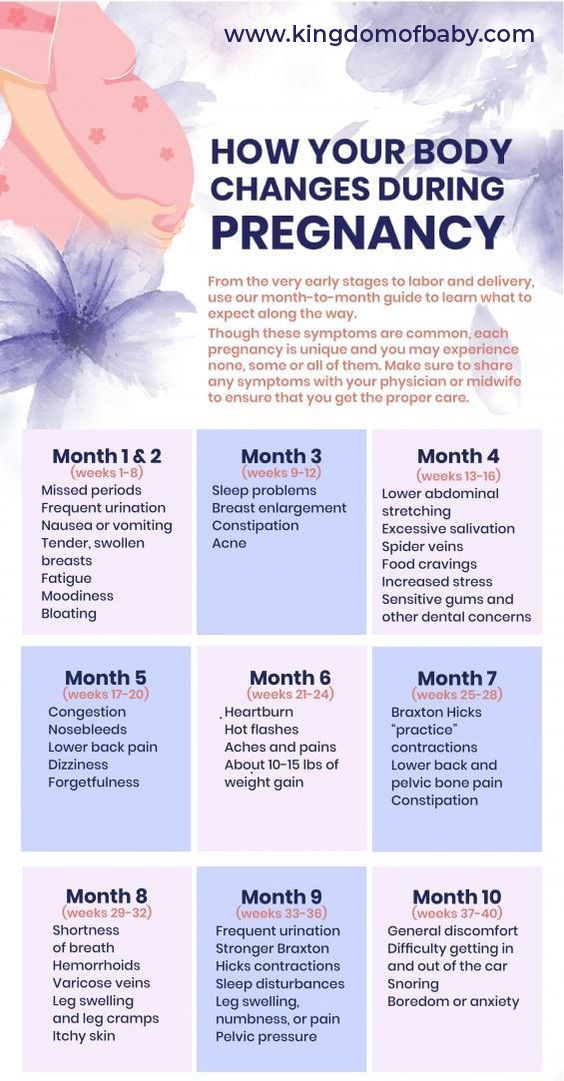 However, in this case, there is a risk of getting a false negative result: in some, due to the characteristics of the body, the level of hCG is initially quite low. nine0005
However, in this case, there is a risk of getting a false negative result: in some, due to the characteristics of the body, the level of hCG is initially quite low. nine0005
Nothing should hurt
Pregnancy is an extreme period for a woman's body. The restructuring of the body, associated with caring for the fetus and preparing for childbirth, becomes a launching pad for the exacerbation or development of chronic diseases of the internal organs, which are called extragenital in medical language. A timely visit to the doctor at the slightest hint of a health problem will reduce the impact of the disease on the course of pregnancy and fetal development and, of course, preserve the health of the woman. nine0005
EXPERT COMMENT
Leila Al-ANI, obstetrician-gynecologist at the American Medical Clinic.
A woman's body is rebuilt in connection with the new task that pregnancy sets before it - the volume of circulating blood increases, the function of the liver, kidneys, gastrointestinal tract, circulatory and cardiovascular systems changes. At the same time, pregnancy aggravates the course of any chronic diseases, since the woman’s immunity is weakened - the body does its best to preserve the fetus. At this time, pathologies that did not manifest themselves can be detected. nine0005
At the same time, pregnancy aggravates the course of any chronic diseases, since the woman’s immunity is weakened - the body does its best to preserve the fetus. At this time, pathologies that did not manifest themselves can be detected. nine0005
The most common of them can be called diseases of the urinary system: cystitis (inflammation of the bladder), pyelonephritis (inflammation of the kidneys), glomerulonephritis. Most often, the cause of their development is an infection that can exist latently in the body for many years and be revealed precisely during pregnancy, or it is a chronic disease that a woman has been suffering for many years. They appear differently. With cystitis, there may be an increase in temperature, pulling pains over the womb and a constant feeling of discomfort in this area, frequent, uncomfortable, and sometimes painful urination in small portions, in which the feeling of an overflowing bladder does not disappear. Often, such a condition of a woman is “attributed” to the peculiarities of the course of pregnancy, implying that frequent urination is a natural phenomenon, and discomfort in the womb area is associated with adaptive processes of the pelvic floor. However, this is not the case - frequent urination is considered normal when, after it, there comes a feeling of emptying the bladder, and it lasts until the uterus has gone beyond the small pelvis, then it normalizes. Pain can be disturbing, but it is usually associated with an increase in the volume of the uterus, and it is difficult to confuse it with pain of another origin. With inflammation of the kidneys, a woman may complain of pain in the lumbar region, impaired urination, and fever. nine0005
However, this is not the case - frequent urination is considered normal when, after it, there comes a feeling of emptying the bladder, and it lasts until the uterus has gone beyond the small pelvis, then it normalizes. Pain can be disturbing, but it is usually associated with an increase in the volume of the uterus, and it is difficult to confuse it with pain of another origin. With inflammation of the kidneys, a woman may complain of pain in the lumbar region, impaired urination, and fever. nine0005
It is impossible to hope that you can cope with the disease after childbirth - problems of the urinary system must be addressed as soon as they are detected. For this, antibacterial therapy is used in accordance with the individual characteristics of the body and with the characteristics of the course of pregnancy. A woman should be under constant supervision and before each visit to the doctor to take a urine test.
Since pregnancy is a kind of provocative factor for the development or exacerbation of existing pathologies, a woman should pay special attention at this time to those complex processes that occur during pregnancy in her body.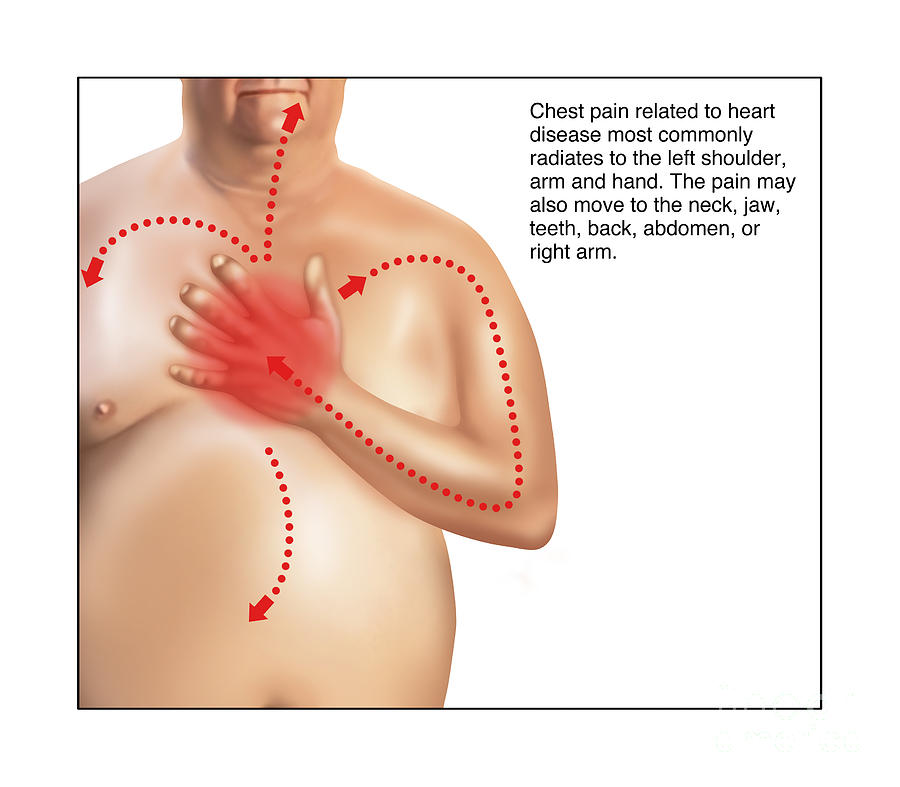 So, diseases of the gastrointestinal tract, especially gastritis, appear in the first trimester of pregnancy against the background of toxicosis. If before pregnancy a woman had problems with the liver (cholecystitis, hepatitis, cholelithiasis), it is necessary to undergo treatment before pregnancy, because the liver during childbearing and childbirth plays an important role, in particular, in the process of blood clotting, its purification . The state of the thyroid gland is also of great importance for the course of pregnancy - the successful outcome of pregnancy depends on the level of hormones produced by it - the ability to avoid miscarriages, pregnancy fading, premature birth. It is also important to constantly monitor the level of sugar in the blood for those suffering from diabetes, so that in case of its increase, the necessary measures can be taken immediately. As for anemia, a competent approach is required for those who have it during pregnancy: it is necessary to prescribe iron-containing preparations carefully, considering, moreover, that the level of hemoglobin is well regulated by nutrition.
So, diseases of the gastrointestinal tract, especially gastritis, appear in the first trimester of pregnancy against the background of toxicosis. If before pregnancy a woman had problems with the liver (cholecystitis, hepatitis, cholelithiasis), it is necessary to undergo treatment before pregnancy, because the liver during childbearing and childbirth plays an important role, in particular, in the process of blood clotting, its purification . The state of the thyroid gland is also of great importance for the course of pregnancy - the successful outcome of pregnancy depends on the level of hormones produced by it - the ability to avoid miscarriages, pregnancy fading, premature birth. It is also important to constantly monitor the level of sugar in the blood for those suffering from diabetes, so that in case of its increase, the necessary measures can be taken immediately. As for anemia, a competent approach is required for those who have it during pregnancy: it is necessary to prescribe iron-containing preparations carefully, considering, moreover, that the level of hemoglobin is well regulated by nutrition. nine0005
It should be remembered that any persistent pain during pregnancy is not normal. As soon as they appear, you should definitely consult a doctor.
Learning to give birth
As a rule, pregnant women are invited to classes at schools for expectant mothers for a period of 24–25 weeks, although if there is no threat of miscarriage and other contraindications, gymnastics can be started earlier. The main thing that pregnant women are taught in schools is to give birth to a child on their own and to facilitate the process of childbirth, that is, to make it less painful. nine0005
EXPERT COMMENT
Ekaterina Bylina, Director of the Family Center for Childbirth Preparation “The Tale of Waiting”.
Preparing for childbirth should be given a lot of time, even if it is sorely lacking or just too lazy to do it. Indeed, it is precisely on how correctly a woman behaves in childbirth, whether she knows how to “manage” her body, that not only the degree of pain during contractions depends, but also the ability to give birth to a child on her own, without resorting to stimulation or caesarean section. nine0005
A woman should remember that childbirth is a job, and if it is performed correctly, it will bring a minimum of pain, and it will not be her at all, but the incomparable satisfaction from the birth of a long-awaited baby. For everything to be just like that, you need to be able to breathe correctly, relax, and be physically prepared.
Special breathing techniques relieve pain during contractions, provide both mother and baby with oxygen to avoid hypoxia during the greatest stress. There are a great many breathing techniques, but you should not try to memorize them all, it is better to choose the most necessary ones in order to be sure to remember them and breathe correctly during contractions automatically, without thinking about how to do it. nine0005
It is very important to prepare the body for the coming test. An individually selected set of exercises will increase blood circulation in the uterus, increase the supply of oxygen to the placenta, and also remove tension in the lower abdomen, and help stimulate labor. Special training will help the baby to easily pass through the birth canal, and strong abdominal muscles will enable the mother to help the child with her own efforts during attempts.
For the approaching birth, you should know how to relieve pain of different localization (in the back, in the legs) with various postures and techniques ... , sister ...), then he should also learn both massage techniques and breathing techniques to help during contractions. nine0005
To come to the maternity hospital prepared for the upcoming test, do gymnastics, do breathing exercises, it is necessary not only at courses for pregnant women, but also at home.
How to choose a maternity hospital?
This question should be asked to yourself literally in the first days of pregnancy. However, it is possible during its planning. Because the success of the main event in the life of every family depends on this choice - the birth of a healthy long-awaited baby, and of course, the health of the mother. nine0005
EXPERT COMMENT
Tatyana Gnevasheva, head of the prenatal department of the maternity hospital on Furshtatskaya.
The main question you should ask yourself before making such an important decision is what are you looking for in the first place? Are you worried about the attitude of the medical staff who will be there at the difficult moment of childbirth? Are you looking for modern equipment, the ability to perform a wide range of studies and expert advice? Or the most important thing for you are the conditions in which the mother and baby will be? For each, there is something different. nine0005
Of course, it is better that the expectant mother likes everything: the doctor turned out to be pleasant and competent, the team is attentive, equipment for all occasions, conditions from which one does not want to leave. Can not be? It happens - the modern level of medical care is able to provide this.
Assess the maternity hospital from the very beginning. How did the administrator meet you, can you choose a doctor yourself, does the staff give the impression of being attentive and interested. Be sure to evaluate whether the doctor is ready to answer any of your questions, and there will certainly be many. Find out what tests can be performed in this maternity hospital, which specialists and what schedule they work in. nine0005
Be sure to ask permission to visit the delivery rooms and wards. And here it is appropriate to ask a question that probably worries many: is it possible for a husband or another loved one to be present at the birth? If so, does he need any preparation in advance so that he understands what is happening better and can even help the woman in labor with something? What are the conditions for his stay: is it enough to want to be present at the birth or do you need some information about his state of health?
You should definitely clarify: if you have an agreement with an individual doctor, will he come to the birth in any case or only if you are lucky and he will be on duty. And does the maternity hospital have an agreement with the ambulance, will it not happen that you will be taken from home not to where you planned to give birth, but to the nearest maternity hospital? nine0005
Even if you expect to have a natural birth, there are many unpredictable things in childbirth. You should find out in advance what the possibilities of anesthesia are, whether they can perform an epidural anesthesia for you, after which, while remaining fully conscious, you will not feel any pain at all.
A very important and difficult time will come immediately after childbirth. That is why evaluate the ward - whether you will be comfortable in it. Find out if you are planning to stay with your baby. How often will your husband and relatives be able to visit you, is it possible for someone to constantly stay next to you to help and cheer up. Is it possible to organize an individual post for child care in case it will be very difficult for you in the first days. And of course, which specialists will examine the baby at this time. nine0005
Feel free to ask for details. This is very important and necessary. A good maternity hospital will be happy to answer all your questions.
Stylish and useful fashion
Pregnancy is the epitome of femininity. So decided the famous Italian fashion designer Pietro Brunelli, fascinated by the charm of a woman "in an interesting position", and created the first pret-a-porter brand in Europe for expectant mothers.
EXPERT COMMENT nine0014 Victoria Shcherbak, PR specialist of the network of salons for expectant mothers and children "Kangaroo".
In fact, today pregnant women have almost unlimited choice of clothes - an entire industry works especially for them and creates beautiful and comfortable clothes for all occasions: for home and work, for leisure and business meetings. Modern fashion helps to hide pregnancy or, on the contrary, emphasizes it.
Collections of Italian stamps (Sara, Pietro Brunelli, Attesa, Donna Mediterranea, Menonove), Dutch (Queen Mum, VIDA VITA), French (Neuf Lune, Crea Concept), Israeli (La Robe Bleue), English (Arabella B), Russian ones (Mammy Size, Sokolova & Bogorodskaya) allow expectant mothers to look stylish and beautiful in any situation and at the same time feel very comfortable. After all, it is especially important for them. Modern designers take into account the requirements for the created clothing: it does not squeeze the body, that is, it does not interfere with normal blood circulation, it has special seams that do not irritate the skin, which became more tender and vulnerable during pregnancy, it is made exclusively from hygroscopic fabrics. And besides, these clothes are able to keep a pregnant woman in a good mood - now she will not, in anticipation of childbirth, wear one shapeless dress designed for all occasions, as it was until recently. Modern pregnant woman looks fashionable and stylish. nine0005
This season, timeless classics are on the cutting edge of fashion - white clothes. Complement white - pale pink, lilac, apricot, milky, azure, mint, red, indigo.
The motifs and colors of the summer collections are the diversity of the floral palette of impressionist artists, the traditional white and blue Gzhel ornament, as well as many stripes. The fabrics of fashionable outfits are as light and delicate as the colors: the finest silk and chiffon, linen, cambric, denim, cool viscose and chintz. In the decoration, the raw edge, embroidery, sequins, beads, stripes, rhinestones, appliqués, braid, “bells”, decorative buttons, metal fittings are still relevant. nine0005
Both fashion designers and women have a special weakness for knitwear. This season the main motif of knitwear is femininity, seductiveness and slight negligence. Knitted blouses and tops are made mainly from natural materials, and to complete a romantic look, designers often use lace, mesh, and transparent inserts. The silhouettes of knitwear become more elegant, they are decorated with ruffles, flounces, ribbons and edgings.
New this season are long tunic dresses that can also be worn with jeans. The collections of different companies are represented by a variety of models of trousers, blouses, skirts, sundresses, dresses, suits, made in different styles: sports, romance, classic. Youth lines - jeans, breeches, shorts with cuffs, white cotton overalls, sundresses with zippers, patch pockets, decorated with rhinestones. There are also elegant models of blouses, tunics, sundresses made of chiffon and silk. Another fashion trend this summer is the nautical theme. The hit of the season is striped knitwear - tops, blouses, sailor dresses, white Bermuda shorts, capris, jackets. Thanks to the use of elastic materials and special adjustment systems, the clothes can be easily changed as the belly grows. There are also new solutions for a changing figure, for example, Arabella B offered side zippers that reach the armhole, and so that clothes from La Robe Bleue can be worn after childbirth, all blouses are designed with nursing clothes in mind. nine0005
Comfortable, useful and stylish - these are the requirements that fashion designers fulfill when creating special clothes for pregnant women.
Prepared by Irina Baglikova
The first symptoms and signs of pregnancy: how to understand that a miracle is near
There are many signs that may indicate pregnancy. These first signs of pregnancy are individual for each woman and the case of pregnancy. During pregnancy, you may find one or more of these signs. Don't worry, it's unlikely you'll have all the symptoms at the same time. In addition, you should not worry in their absence. It is possible to be pregnant and not see any signs of pregnancy. Regardless of whether you show the first signs of pregnancy or not, the only reliable way to determine pregnancy is to take a pregnancy test. nine0005
1. Missed period
If you normally have regular periods, this is the first physical sign of pregnancy. Remember that during pregnancy, light bleeding or discharge is possible both during the expected period and when the fertilized egg is implanted in the uterus. If your cycle is irregular, you may notice other pregnancy symptoms before you notice the absence of your period.
Some women, after having had perfectly regular periods for many years, may experience prolonged absence of menstruation. In this case, the first step is to exclude the possibility of pregnancy by performing a home pregnancy test. The medical term for not having a period for more than 6 months is amenorrhea. There can be many reasons for the unexpected cessation of periods, including rapid weight gain and loss, excessive exercise, and stress. If you are experiencing hot flashes and a decrease in interest in sex, these may be the first signs of menopause (perimenopause). Whatever the symptoms, it's a good idea to check with your doctor if your periods change or stop. nine0005
2. Changes in the mammary glands
The main hormonal changes occur differently for everyone, depending on the individual characteristics of the organism. The timing of when such restructurings begin to occur is also individual for each.
Breast volume
Breast swelling is the first and earliest sign of pregnancy. Usually, the breasts begin to increase in volume in the first 10 weeks, as well as in the period before childbirth. Sometimes the breast in the process of carrying a baby does not increase much. It all depends on the initial size and characteristics of the woman's body. But it also happens that the breast begins to gradually increase only by the sixth or seventh month, at the moment when the body begins to prepare for the upcoming birth. The growth of the milky tract occurs due to estrogens, while the glandular tissue begins its active growth thanks to progesterone. nine0005
Glandular tenderness and pain
Discomfort and pain can accompany a woman throughout her pregnancy. But it is chest pain that women begin to feel at the very beginning of pregnancy. The glands can hurt or itch even when the nipples come into contact with underwear. At the same time, expectant mothers note swelling, weighting, tingling of the chest.
Discoloration of the nipples
Nipples and areolas in women at an early stage darken, increase in diameter. Such changes are an important step in preparing for the birth of a baby and breastfeeding. It is believed that it is thanks to the dark color of the areolas that it is easier for a newborn to find his source of nutrition. In addition to changes in color and diameter, small pimples may also appear on the areolas. nine0005
Discharge from the nipples
Colostrum is the first food of a newborn. Thanks to him, the baby in the first minutes of its existence receives useful substances that help strengthen the immune system and protect it from the negative effects of the environment. Colostrum is a thick, sticky yellow mass that is released before milk appears. In early pregnancy, a drop of colostrum can also be released from the breast, which indicates the preparation of the breast for birth and future feeding of the baby. To ensure breast hygiene at this stage, it is recommended to purchase special liners that are applied to the nipples in a bra. This will keep the underwear clean and prevent colostrum from getting onto the bra. nine0005
Stretch marks and venous mesh on the chest
All these changes occur due to the increase in the volume of the mammary glands, as well as increased blood circulation in the woman's body. With sufficient levels of collagen, stretch marks can be avoided. With the right care, stretch marks can be less noticeable.
3. Tiredness
You may feel unusually tired during the first few weeks of pregnancy. This may be due to an increase in the level of progesterone in the body, since it maintains the mucous membrane of the uterine cavity in the state necessary for the development of pregnancy. For the same reason, some patients experience fainting. By the beginning of the second trimester, ailments usually disappear without a trace. However, it is important to be examined and make sure that there are no other health problems. nine0014 Also in the early stages of pregnancy, women experience a decrease in blood pressure. Due to the expansion of blood vessels, small capillaries are included in the blood circulation process. This is necessary for the proper nutrition of the pelvic organs and the proper development of the fetal egg.
If you have low blood pressure (hypotension), you may experience headache, tinnitus, flies before your eyes. What to do in this case, the doctor will tell. Most often, it is enough to adjust the diet and spend more time in the fresh air. Low blood pressure is considered less dangerous during pregnancy than hypertension. nine0005
4. Toxicosis / morning sickness
Between the 2nd and 8th weeks of pregnancy, you may experience nausea and vomiting. As a rule, improvement occurs by the 16th week. Despite the name “morning sickness,” bouts of nausea can recur at any time of the day and it is possible that you will experience it all the time.
5. Hyperemesis gestation (excessive vomiting)
1 in 100 women suffers from hyperemesis gestation. Usually, hyperemesis goes beyond the first trimester (12-13 weeks) and causes such frequent bouts of uncontrollable vomiting that no food or liquid is retained in the body. As a rule, it is treated, and only in very severe cases can lead to pregnancy complications. In case of severe vomiting, consult a doctor for advice. nine0005
Anti-nausea drugs are prescribed by a doctor only for women who are dehydrated - symptoms include increased dryness of the mouth and concentration of urine (dark yellow).
6. More frequent urination
From the first days of pregnancy, a woman's body produces hCG, a hormone also known as human chorionic gonadotropin, which increases the need to empty the bladder. As the pregnancy progresses, the body naturally begins to retain more fluid. This happens under the action of the hormone progesterone. nine0005
You may also need to urinate more frequently 6-8 weeks after conception. This is due to the fact that the uterus increases in size and puts pressure on the bladder. At the end of the first trimester, your uterus rises into your abdomen, which will take some of the pressure off your bladder.
If frequent urination becomes too much of a problem early in pregnancy, follow our advice:
- Avoid coffee or tea as they are considered diuretic drinks.
- Lean forward when you urinate. This simple action will help you better empty your bladder to the last drop. Sometimes the slopes should be repeated 2 times.
- Do not reduce the amount of liquid you drink per day (water, compote, juices, dairy products), thinking that this is a way out of this situation.
Your body and baby need constant hydration. Dehydration can lead to the development of a urinary tract infection. nine0209
- Try to drink more during the day, and in the evening and before going to bed, reduce fluid intake to a minimum.
- Do not abuse salty, spicy, fatty foods, alcohol, do not eat smoked meats and other foods that cause increased thirst.
- Constipation can also trigger urination by putting pressure on the bladder, so increase your fiber intake to keep stool regular.
- Daily perform a special set of Kegel exercises aimed at strengthening the muscles of the pelvic floor. Such gymnastics is also recommended for stress urinary incontinence in pregnant women. Many exercises can be done while watching TV, driving a car, or sitting at a computer. nine0209
- Treat toilet visits as a normal process, not as a pathology. Don't dwell on the problem.
7. Mood swings
Hormonal changes can cause mood swings in early pregnancy. You may even cry for absolutely no reason.
There are several versions of this condition:
- this is due to an increased surge of progesterone, which causes excitability. Similar to the state during the menstrual cycle. This also adds increased sensitivity of the mammary glands, early toxicosis, which cause not the most pleasant sensations; nine0209
- experts also explain the change in mood by the fact that this is a kind of defensive reaction and the ability to prepare for changes and accept them. A woman needs a lot of time to understand that now she is not alone, that a new life and a new person are developing inside;
- another version, at this moment the primitive instincts of procreation have influence, the expectant mother is trying in this way to protect the child from the negative effects of the environment;
- The main and most common version of nervousness at the initial stage is a sharp change in hormonal balance. But experts disagree and there is no consensus on this matter.
nine0209
8. Changes in food preferences (“wishlists”) and sensitivity to smells
You may stop liking some things, such as tea, coffee and fatty foods, while you are craving foods that you usually do not eat. The smell of foods such as coffee, meat, or alcohol can also make you feel nauseous.
9. Cramping
During the first trimester and sometimes later in pregnancy, you may experience pain in your legs or feet. This is due to the fact that the body changes the way calcium is absorbed. nine0005
10. Heartburn
This symptom is due to changes in hormonal levels and can occur at the very beginning of pregnancy, not disappearing until the very birth. The feeling of discomfort is provoked by the reflux of the acidic contents of the stomach and usually does not indicate a serious pathology. The use of chocolate, strong tea and coffee, as well as citrus fruits, increases the frequency of heartburn attacks.
11. Heaviness and pulling pains in the lower abdomen
Pregnancy symptoms such as heaviness and pulling pains in the lower abdomen in the early stages are observed in almost every pregnant woman and are associated with increased blood circulation in the pelvic area during attachment of the embryo to the uterine wall.
